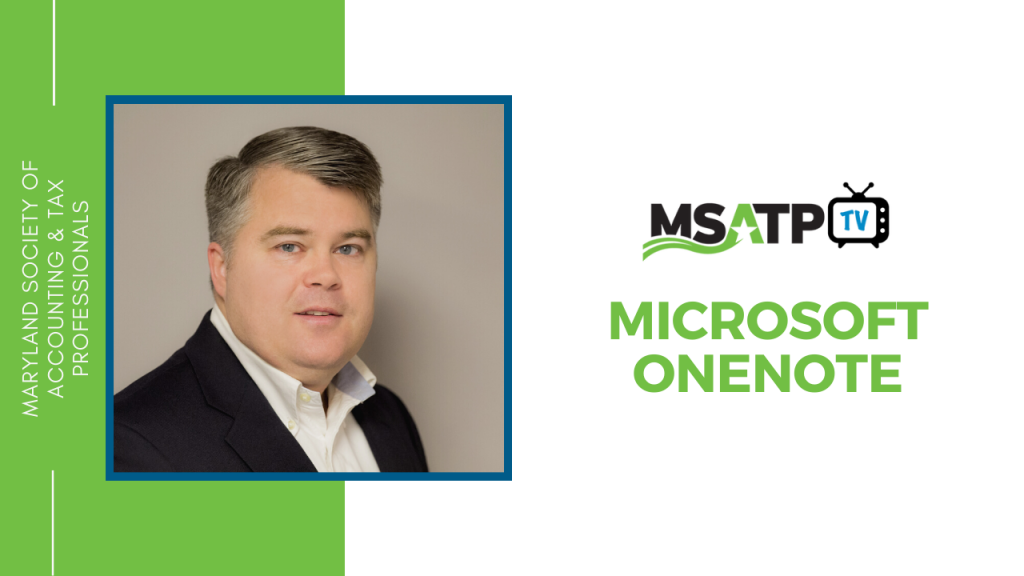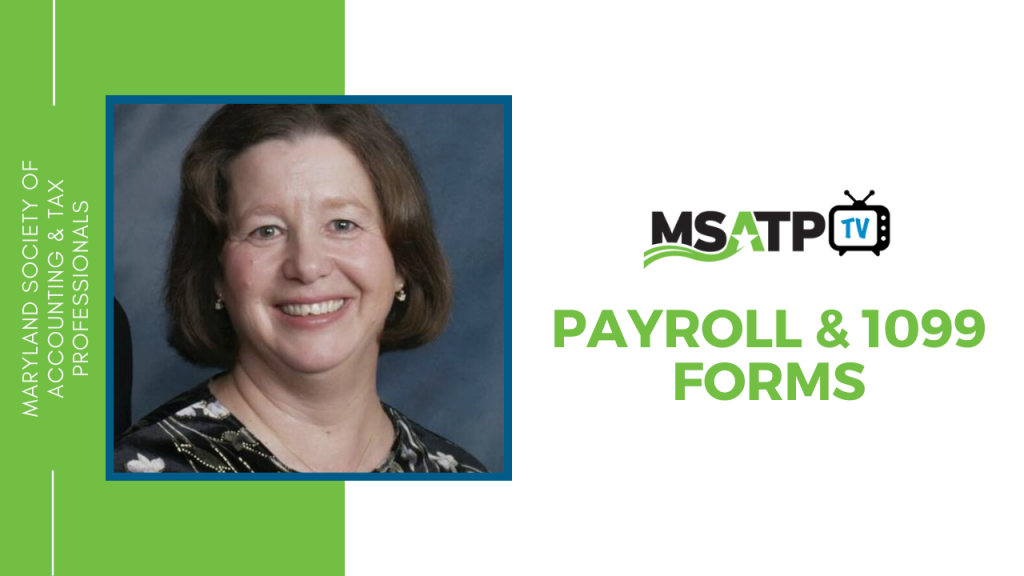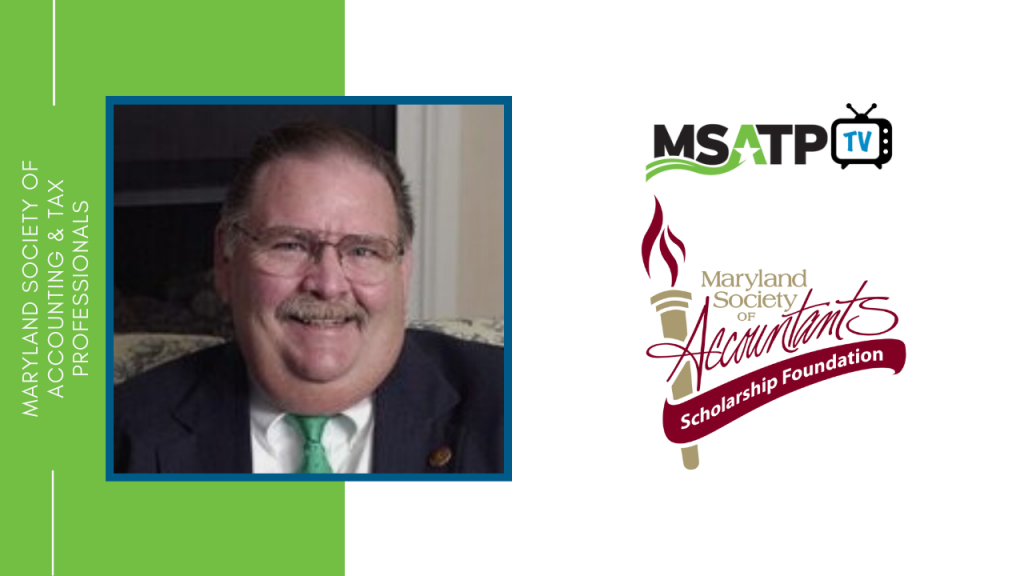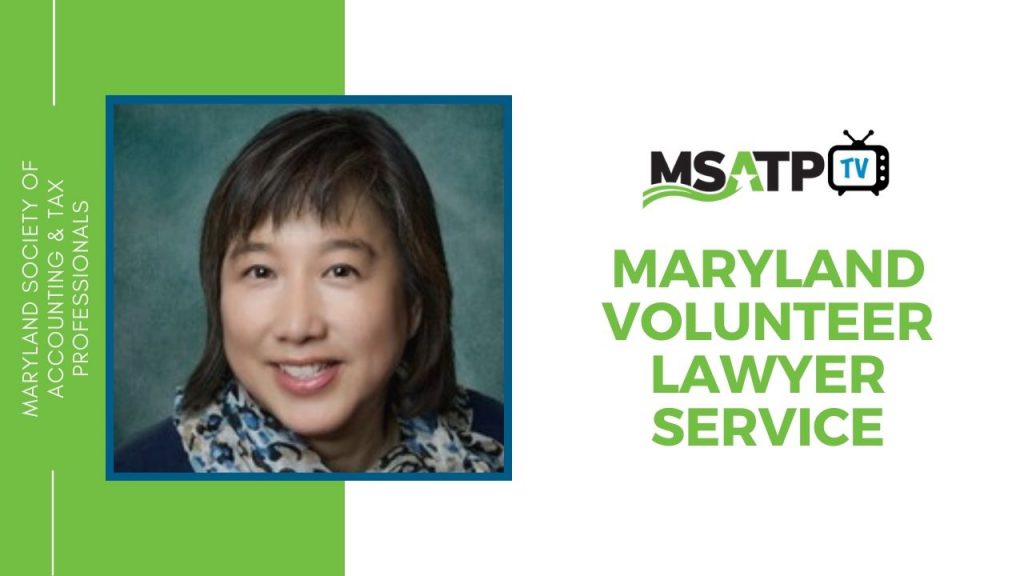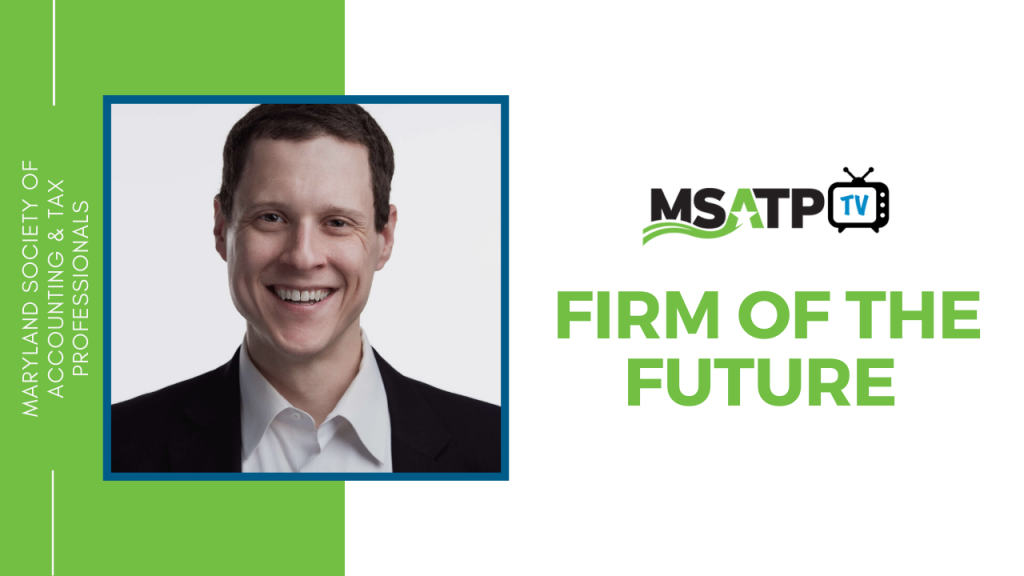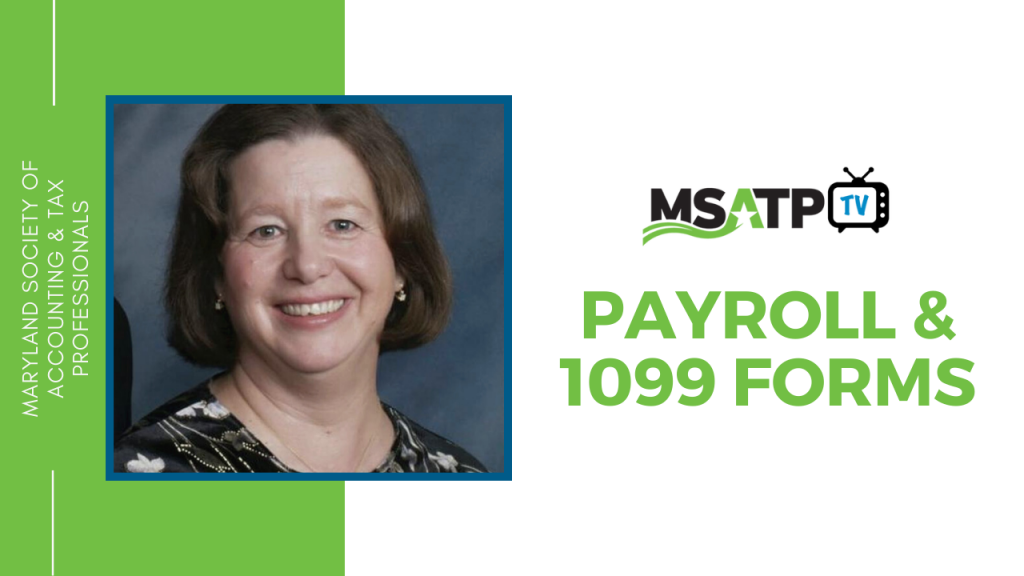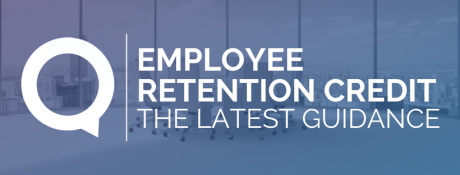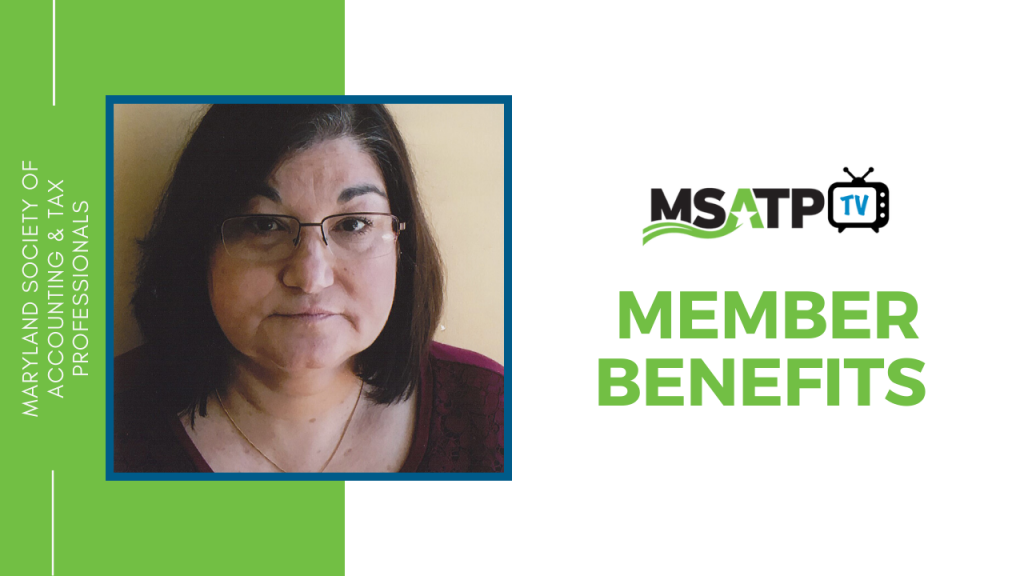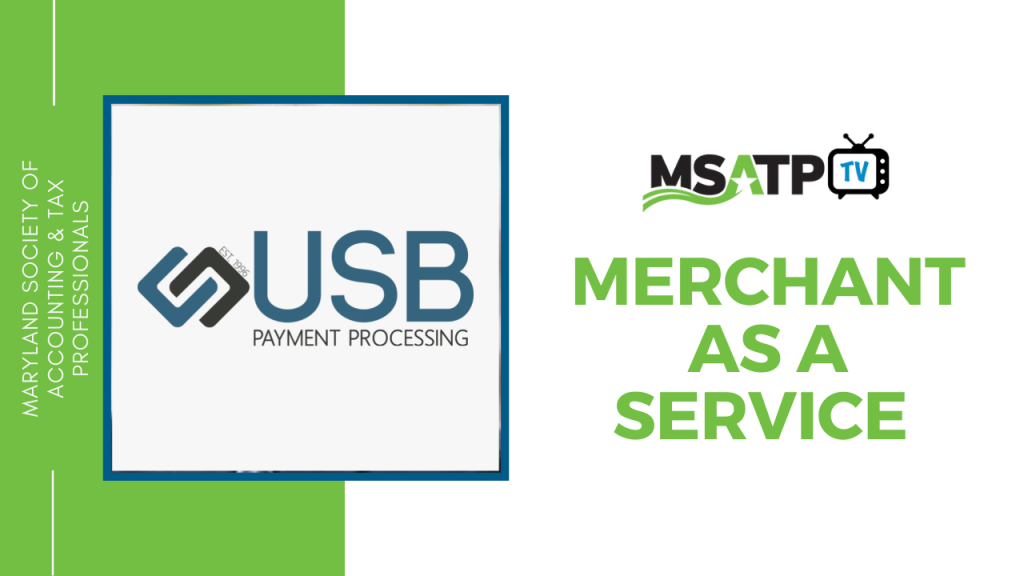
On MSATP TV this week, Julie Weaver from the Maryland Council on Economic Education (MCEE) joined us to discuss the organization’s financial literacy initiatives.
Watch on YouTube.

Later this week, Tammy Nickels from Wolters Kluwer joined us on MSATP TV to highlight the CCH TaxAware program for MSATP members.
Watch on YouTube.
Interested in becoming an MSATP member to take advantage of this perk and other exciting benefits? Click here to join today.
Coming Up: On Tuesday, November 23 at 10 a.m., we have a special pre-Thanksgiving episode with Rob Smith of Point7Seconds to discuss his class on Microsoft Lists. Have you been struggling with workflow management in processing tax returns? Rob Smith has a solution to help you track your and your associates’ progress throughout a tax return. Give yourself the gift of proper workflow management this holiday season!
To register for the webinar, please click here.
Be sure to Like/Follow us on Facebook so you can catch MSATP TV live every week!
IRS Provides Guidance on Per Diem Rates and The Temporary 100% Deduction for Food or Beverages From Restaurants | IR-2021-225
The IRS issued Notice 2021-63 to make clear how the temporary 100% business deduction for food or beverages from restaurants applies to taxpayers properly applying the rules of Revenue Procedure 2019-48 for using per diem rates.
Previously, the IRS issued Notice 2021-25 providing guidance under the Taxpayer Certainty and Disaster Relief Act of 2020, which added a temporary exception to the 50% limit on the amount that businesses may deduct for food or beverages. The temporary exception allows a 100% deduction for food or beverages from restaurants, as long as the expense is paid or incurred in 2021 or 2022.
For more information, click here.
IRS Announces New Online Tool to Help U.S. Withholding Agents Validate Their 1042-S Data Prior to Filing | IR-2021-223
The IRS launched a new online tool designed to help U.S. withholding agents comply with their reporting and withholding responsibilities with respect to IRS Form 1042-S (Foreign Person’s U.S. Source Income Subject to Withholding).
The tool performs a quality review of data before submission to the IRS. Use of the tool does not change a withholding agent’s obligations to file Forms 1042-S with the IRS and furnish a copy of the Form 1042-S to the payee.
For more information, click here.
IRS Advisory Council Issues 2021 Annual Report | IR-2021-227
The Internal Revenue Service Advisory Council today issued its annual report for 2021, including recommendations to the IRS on new and continuing issues in tax administration.
The IRSAC is a federal advisory committee that provides an organized public forum for discussion of relevant tax administration issues between IRS officials and representatives of the public. IRSAC members offer constructive observations regarding current or proposed IRS policies, programs and procedures.
For more information, click here.
Resources to Make Tax Time Easier for U.S. Service Members and Veterans | COVID Tax Tip 2021-171
The IRS has a variety of resources to help members of the military, veterans and their families navigate the unique and complex circumstances that come with filing taxes while in the military. Reviewing these resources is a good way to get ready for the upcoming tax filing season.
For more information, click here.
Teachers Can Deduct Out-of-Pocket Classroom Expenses Including COVID-19 Protective Items | COVID Tax Tip 2021-169
Fall is here and another school year is in full swing. Many teachers are already dipping into their own pockets to buy classroom supplies that will help set their students up for success. Doing this all year long can add up fast. Fortunately, eligible educators may be able to offset qualified expenses they paid in 2021 when they file their tax return in 2022.
Educators who work in schools may qualify to deduct up to $250 of unreimbursed expenses. That amount goes up to $500 if two qualified educators are married and file a joint return. However, neither spouse can deduct more than $250 of their qualified expenses when they file their federal tax return.
For more information, click here.
IRS Criminal Investigation Releases Annual Report Highlighting 2,500+ Investigations, Law Enforcement Partnerships | IR-2021-232
Over 2,500 criminal investigations, the identification of more than $10 billion from tax fraud and financial crimes, and a nearly 90% conviction rate are just a few highlights from the IRS-Criminal Investigation (IRS-CI) Fiscal Year 2021 Annual Report. The report, released Thursday, details statistics, important partnerships and significant criminal enforcement actions from IRS-CI, the criminal investigative arm of the IRS, for the past fiscal year, which began Oct. 1, 2020 and ended Sept. 30, 2021.
“IRS-CI agents are the only federal law enforcement officers with the authority to investigate criminal violations of the U.S. tax code. Their work reinforces the backbone of our voluntary compliance tax system — a system that funds services and benefits for our nation, including defense, infrastructure and education,” said IRS Commissioner Chuck Rettig.
For more information, click here.
IRS Provides Answers to States and Local Governments on Taxability and Reporting of Payments from Coronavirus State and Local Fiscal Recovery Funds | IR-2021-231
The IRS provided answers regarding Coronavirus State and Local Fiscal Recovery Funds (SLFR Funds). These funds give eligible state and local governments a substantial infusion of resources to meet pandemic response needs.
The answers are in FAQs (FS-2021-16) and detail the tax consequences for individual recipients and the reporting requirements for the states and local governments and employers, as applicable.
For more information, click here.
Tax Professionals Can Now Order More Transcripts from the IRS | IR-2021-226
The Internal Revenue Service today announced that, effective Nov. 15, 2021, tax professionals are able to order up to 30 Transcript Delivery System (TDS) transcripts per client through the Practitioner Priority Service® line. This is an increase from the previous 10 transcripts per client limit.
“Increasing the number of transcripts a caller can receive addresses the concerns the IRS has received from PPS callers. This is another example of addressing concerns from our partners and stakeholders,” said Ken Corbin, the Wage and Investment Commissioner and the IRS Taxpayer Experience Officer.
For more information, click here.
IRS Announces Changes to Retirement Plans for 2022 | Tax Tip 2021-170
Next year taxpayers can put an extra $1,000 into their 401(k) plans. The IRS recently announced that the 2022 contribution limit for 401(k) plans will increase to $20,500. The agency also announced cost of living adjustments that may affect pension plan and other retirement-related savings next year.
For more information, click here.
IRS Unveils New Online Identity Verification Process for Accessing Self-Help Tools | IR-2021-228
The IRS announced the launch of an improved identity verification and sign-in process that enables more people to securely access and use IRS online tools and applications.
Taxpayers using the new mobile-friendly verification procedure can gain entry to existing IRS online services such as the Child Tax Credit Update Portal, Online Account, Get Transcript Online, Get an Identity Protection PIN (IP PIN) and Online Payment Agreement. Additional IRS applications will transition to the new method over the next year.
For more information, click here.
IRS: Families Will Soon Receive November Advance Child Tax Credit Payments; Time Running Out to Sign Up Online to Get an Advance Payment in December | IR-2021-222
The Internal Revenue Service and the Treasury Department announced today that millions of American families will soon receive their advance Child Tax Credit (CTC) payment for the month of November. Low-income families who are not getting payments and have not filed a tax return can still get one, but they must sign up on IRS.gov by 11:59 pm Eastern Time on Monday, Nov. 15.
This fifth batch of advance monthly payments, totaling about $15 billion, will reach about 36 million families across the country. The majority of payments are being made by direct deposit.
For more information, click here.
